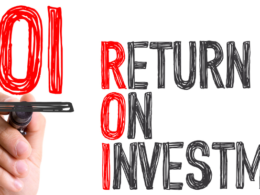Do you ever wonder how some small businesses seem to defy the odds and experience exponential growth, while others struggle to stay afloat in the competitive business landscape?
What if I told you that the secret to their success lies in harnessing the power of business analytics?
In today’s digital age, data is king, and small businesses that leverage business analytics effectively can gain a competitive edge, make informed decisions, and drive sustainable growth.
Imagine having the ability to predict market trends, understand your customers on a deeper level, optimize your operations, and ultimately, boost your bottom line. Business analytics empowers small businesses to do just that and more.
In this blog, we’ll explore the world of business analytics and show you how small businesses can harness its potential for unprecedented growth.
1. What Is Business Analytics?
Before we delve into how small businesses can use business analytics to their advantage, let’s start by understanding what business analytics is all about.
Business analytics is the process of collecting, analyzing, and interpreting data to gain valuable insights that drive better decision-making and improve business performance.
It involves the use of various tools, techniques, and technologies to transform raw data into actionable information.
2. The Benefits of Business Analytics for Small Businesses
Now that we have a basic understanding of business analytics, let’s explore why it’s so essential for small businesses.
1. Data-Driven Decision Making
In the past, business decisions were often based on gut feelings or limited information. With business analytics, small businesses can make informed decisions backed by concrete data.
2. Competitive Advantage
In a competitive market, having access to data-driven insights can give your small business a significant advantage. It allows you to identify emerging trends and adapt your strategies accordingly.
3. Improved Customer Understanding
Understanding your customers’ behavior and preferences is crucial for small businesses. Business analytics helps you gain insights into customer demographics, buying patterns, and feedback, enabling you to tailor your products and services more effectively.
4. Enhanced Operational Efficiency
Efficiency is key for small businesses with limited resources. Business analytics can optimize various aspects of your operations, from inventory management to supply chain logistics, reducing costs and increasing efficiency.
5. Personalized Marketing
One of the most exciting aspects of business analytics is its ability to enable personalized marketing. You can create targeted marketing campaigns that resonate with your audience, leading to higher conversion rates and customer loyalty.

3. How to Implement Business Analytics in Your Small Business
Now that you’re aware of the benefits, let’s explore how to implement business analytics in your small business step by step.
1. Define Your Goals
Start by identifying your business objectives. What do you want to achieve with business analytics? Are you looking to increase sales, reduce costs, or enhance customer satisfaction? Clarifying your goals will guide your analytics efforts.
2. Collect Relevant Data
Determine what data is essential for achieving your goals. This could include sales data, customer data, website traffic, and social media metrics. Invest in data collection tools and systems if necessary.
3. Choose the Right Analytics Tools
Select the analytics tools and software that align with your business needs. There are various options available, ranging from basic spreadsheets to advanced analytics platforms.
4. Analyze and Interpret Data
Once you have collected data, it’s time to analyze and interpret it. Look for trends, patterns, and insights that can inform your decision-making process.
5. Make Informed Decisions
Use the insights gained from your analysis to make informed decisions. Whether it’s adjusting your marketing strategy or optimizing your supply chain, data-driven decisions will drive growth.
6. Monitor and Adjust
Business analytics is an ongoing process. Continuously monitor your data and adjust your strategies as needed. Market conditions change, and your business should adapt accordingly.
4. Real-Life Examples of Small Businesses Leveraging Business Analytics
To illustrate the impact of business analytics, let’s look at a few real-life examples of small businesses that have harnessed the power of data.
Example 1: E-commerce Success
A small online retailer used data analytics to track customer behavior on their website. By analyzing which products were frequently viewed but not purchased, they made adjustments to their website layout and product descriptions, resulting in a 20% increase in sales.
Example 2: Restaurant Optimization
A local restaurant used business analytics to optimize its menu and pricing. By analyzing sales data and customer feedback, they identified popular dishes and adjusted prices accordingly. This led to a 15% increase in revenue over six months.
Example 3: Inventory Management
A small manufacturing company improved its inventory management using analytics. By analyzing historical sales data and supplier lead times, they reduced excess inventory and saved 10% on operational costs.
5. Overcoming Challenges in Implementing Business Analytics
While the benefits of business analytics are undeniable, small businesses may encounter challenges during implementation. Common hurdles include budget constraints, data security concerns, and a lack of expertise. However, these challenges can be overcome with careful planning and investment in training and technology.
In a world where data is abundant, small businesses that embrace business analytics are poised for success. By making data-driven decisions, gaining a competitive edge, and optimizing operations, you can unlock the full potential of your small business and drive sustainable growth.
Remember, business analytics is not a one-time effort but an ongoing journey. As you continue to collect and analyze data, you’ll uncover new opportunities, refine your strategies, and stay ahead in the ever-evolving business landscape.
So, are you ready to harness the power of business analytics and propel your small business to new heights of success? The future is bright, and it’s data-driven.
Start your journey today and watch your small business thrive with the transformative power of business analytics.
 Pin
PinElevate your career with Accredian’s Executive Program in Data Science and Business Analytics. Join us now!






